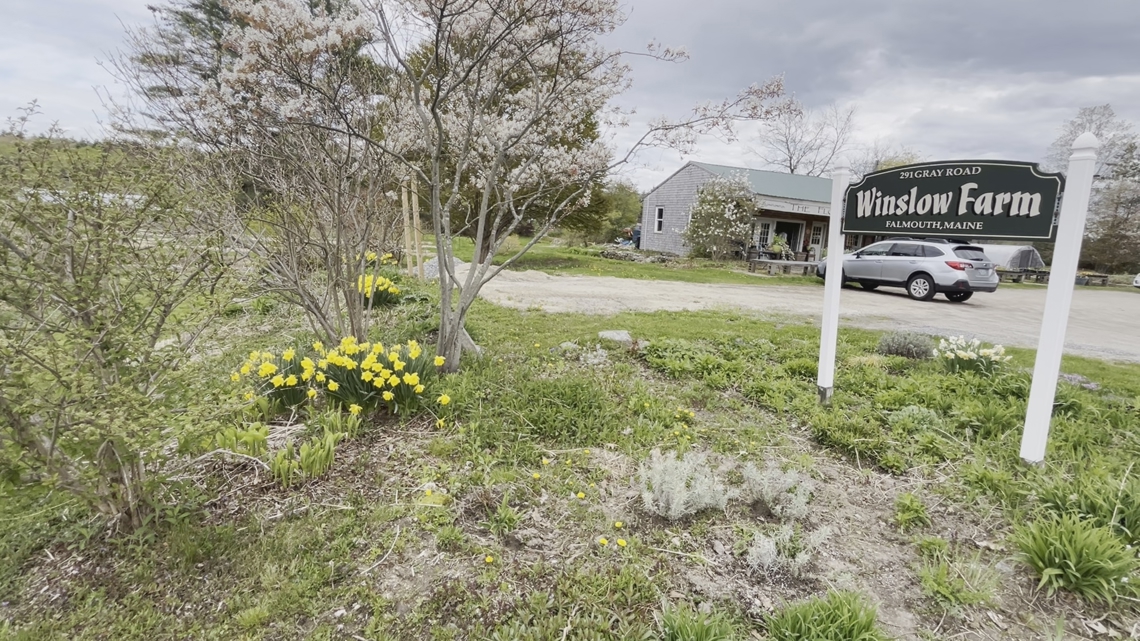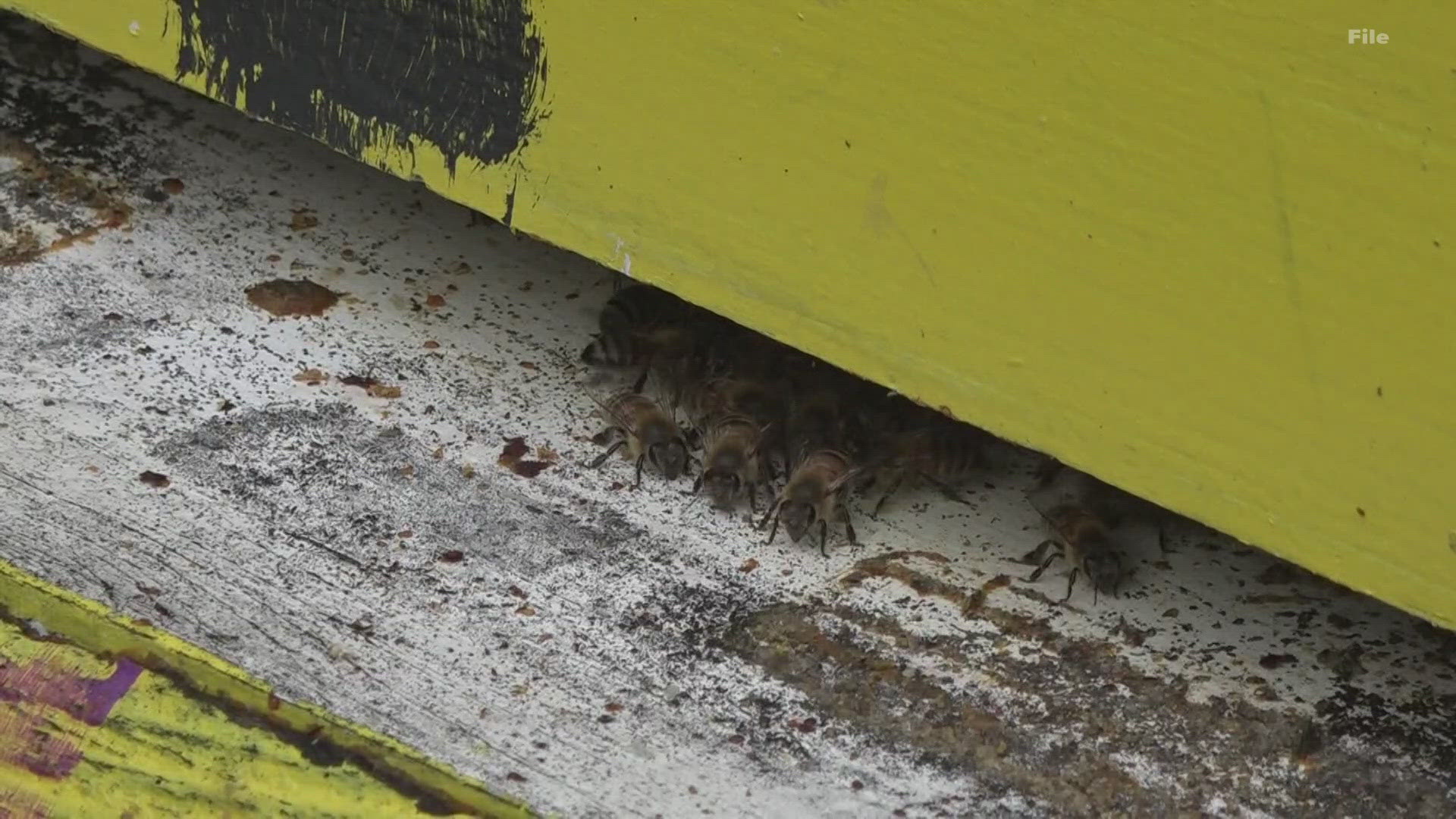FALMOUTH, Maine — A wave of customers returned to local farms and flower shops this weekend looking for some last-minute Mother's Day gifts.
Winslow Farm and Flower Shop in Falmouth had one of its first busy days of the season on Sunday as Sarah Boudreau and her family welcomed back regular customers and locals.
It's a lot of work to get ready for the busy season, Boudreau said, but it's all worth it when the farm gets its first flower delivery of the season.
“I love flowers, they bring me joy and they light up my life if you will," she said.
The Boudreaus have owned the farm for decades and 30 years ago they started to allow families to pick their own blueberries during the harvest season.
“They were ripening the first week of August, [but recently] we have opened for blueberry picking on July 10th, that’s how much it’s moved up in 30 years. It’s amazing," Boudreau said.
Bees play a crucial role in crop pollination for Maine farms. According to the Maine Department of Agriculture, Conservation, and Forestry, more than 45,000 hives containing 1.4 billion bees are needed just to pollinate the state's wild blueberry crop. Bees are also imported to help pollinate other crops.
Max Boudreau, Sarah's son, manages the crops and farm operations and said their bees pollinate most of their vegetables and provide an added boost to the farm's ecosystem. The family-run farm has one hive and adds a new box of bees each year.
Lisa Hanscom's family has owned and operated Welch Farm in Roque Bluffs since 1912. She said the farm rents 32 hives a year to pollinate the blueberry fields. Hanscom said they also use methods to help restore the native bee population.
"And if we didn’t have those, we just wouldn’t have the crop," she said.
A truck carrying 15 million bees to Washington County crashed last week on I-95 in Clinton, according to the Maine Department of Public Safety. Hanscom's bees were not on that truck, but she's assisted in similar accidents in the past.
“And that can be kind of devastating, it breaks up the hives, the bees get all upset. And they're all over the place and it takes a lot of work to get those hives back together again," she added.
While this accident isn't expected to disrupt the season, farmers will once again hope for good weather this summer
“You can’t fight Mother Nature," Max Boudreau said. "Making a living on a farm is a very difficult thing".
Last summer, Maine farms dealt with lots of rain compared to the extreme droughts many parts of the state experienced two seasons ago.
Winslow Farm's irrigation pond dried up multiple times during the drought during that summer.
It's a lot of hard work, and the weather changes can be difficult to deal with at times, but Boudreau said it's all worth it when she catches up with customers who stop by the farm to buy flowers for joyous life events like graduations and Mother's Day.


Hanscom said she doesn't want the extremes of too much rain or too much heat. Rain at night and cooler temperatures are ideal, but she understands it never really works out that way.
Along with picking blueberries, Welch Farm will also offer farm tours and opportunities to stay at cabins on the property this summer.
“[People] can actually explore the farm and everything soon. We’ve already started booking out tours this summer so I’m actually really excited it's going to be a really fun summer for us," she added.
Maine's blueberry harvest traditionally begins around late July. To find a farm closest to you, you can follow this link.

